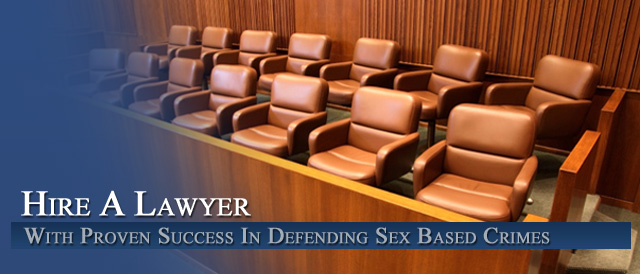




Colorado Criminal Law – Sentencing – Understanding The Importance of Proper Preparation for the Sentencing Hearing – Some Tips for Arguing for Mitigation Of The Sentence
Other than trial – there are few hearings in a Colorado Criminal Case that are more important than the sentencing stage of the proceeding. Yet time and again, I have witnessed little or no preparation on the part of defense counsel for this all important presentation.
As I have written in the web page on pre-sentence reports: A Colorado judge who must pass sentence in any criminal case want as much information as possible I his or her hands before imposing the sentence. Many courts do not accept stipulations between the DA and the defense lawyer as regards the sentence. Therefore the pre-sentence report takes on critical importance.
So too is the presentation on the part of the defense lawyer to the judge – a rushed judge – who has little time for trite and impersonal arguments. Judges are looking for interesting arguments filled with passion and advocacy on the part of the defendant. Why I call the standard ” turning his life around” pitch is worn out and falls on deaf ears.
Here are some of the steps the criminal defense lawyer can and should take to prepare for the sentencing hearing
At sentencing, the goal of the criminal defense team (the criminal defense lawyer, the defendant, the defendant’s witnesses) is to present a narrative about the defendant that explains how and why he arrived at the point in his life where he committed his crime, how he will avoid wrongdoing again, and why the judge should feel confident that the proposed punishment addresses the goals of rehabilitating the defendant, deterring his and others’ wrongdoing and protecting the public.
If you or a loved one is facing sentencing, here are some steps your criminal defense team can take to prepare for the sentencing hearing:
Take steps toward rehabilitation and document those steps
As early in the case as possible, the criminal defense team should address what steps the defendant can take to mend the error of his ways and convince a judge that he has been rehabilitated. Good intentions prove nothing. It is best to present evidence of concrete steps the defendant has taken to put his life in order, through drug treatment programs and gainful employment. Each of these steps should be documented with certificates and letters from treatment and counseling programs and employers. Your criminal defense lawyer should deliver all certificates and letters and sentencing memoranda to the judge and prosecutor at least one week before sentencing.
Have friends and character witnesses ready
The judge has made up his mind by the day of the sentencing hearing and does not want to hear lengthy testimony, but a few well-chosen witnesses can have impact.
Three types of witnesses are best:
(1) A very close friend or spouse. This person should attest to the goodness in the defendant, his remorse and suffering for his offense, and the rehabilitative steps he has taken to reform and make amends.
This person also might write the court and testify about any special needs only the defendant can meet (e.g., a particularly ill or disabled family member for whom the defendant cares on a regular basis).
(2) Individuals who can describe the difference the defendant has made in their lives through especially charitable or noble deeds.
(3) Ministers, public servants and community leaders who know your client and can attest to his good character. These witnesses show that a person of good repute thinks so highly of the defendant that he will risk his own reputation by testifying publicly for him.
To be useful, these witnesses must enjoy the judge’s respect, must know the defendant well, and must be informed about the nature of the crime and any sordid details which the prosecutor might disclose at a sentencing hearing. Prepare all the witnesses for the usual character witness cross-examination along the lines, “Would you have the same opinion of defendant’s character if you knew that he pleaded guilty of stealing from a charity or to selling drugs to children?”
Seek the prosecutor’s and probation officer’s input
Usually, the prosecutor seeks prison time and views treatment programs as attempts to avoid just punishment. However, prosecutors also like to think of themselves as both righteous and reasonable. Thus, it does not hurt to explore the prosecutor’s likely reaction to the defense lawyer’s arguments and proposals. For example, the criminal defense lawyer might explain to the prosecutor that the defendant suffered from depression, which ran in his family, and he began to self-medicate through drugs; the defense attorney might discuss how the defendant has pursued treatment with success, and the reasoning behind the defense team’s proposal that probation be imposed to include continued treatment.
If Possible – Line up social workers and therapists to testify or at least to present reports to the Judge.
Psychologists and mitigation specialists can describe how the defendant’s misfortunes led to his misdeeds. However, this testimony does not help much unless defense counsel can demonstrate the steps the defendant has taken to reform and the workable plan he has for the future.
Make full restitution in advance of sentencing.
Early and full restitution to the victims impresses courts and might deflate the victims’ anger and opposition to any leniency.
Check for special sentence thresholds
Your jurisdiction may have peculiar rules that trigger substantial changes in the length or nature of your client’s sentence at specific sentence lengths. An experienced criminal defense attorney will thoroughly review the sentencing laws and with the presentence investigator about peculiar sentence options and pitfalls.
The defendant’s testimony
A defendant has the right to address the court at sentencing, but defendants often hurt themselves more than help. Defendants usually want to tell the judge that they really are good people and that the offense was atypical of them; that other forces (e.g., a bad marriage, depression, drug and drink, or evil friends) led them to commit their crime. In most instances, this sounds like excuse-making and serves only to alienate the judge.
A better approach is to let the lawyer and the other witnesses (family, friends, therapists) describe the good side of the defendant and explain what led him to commit his crime. The main things judges want to hear from defendants are remorse, shame and a resolve to do whatever it takes to avoid relapse. The defendant succeeds if he makes a brief and sincere-sounding apology to the victims and the court. In short, “grovel or keep quiet” is the best advice a criminal defendant can receive before the sentencing hearing.
Caution: Do not underestimate how difficult this may be for the defendant. Thus, the second-best piece of advice criminal defendant can receive before the sentencing hearing: write out what you will say, rehearse it, and read your statement to the court, rather than improvising.
How can your criminal defense attorney help the judge see the real you before sentencing?
The criminal justice system dehumanizes defendants before disposing of them. As a consequence, prior to sentencing, the criminal defense attorney faces the daunting job of introducing the defendant to the judge and prosecutor as a unique individual, with hopes and dreams, friends and family, strengths and weaknesses. Judges and prosecutors have more difficulty sending to prison an individual they could know as a friend.
The presentence report rarely achieves this objective. Even the section that describes the defendant’s upbringing and family, reads like an incomplete list of facts, raising more questions than it answers. There are, though, other opportunities for the criminal defense attorney to humanize the defendant and help the judge and prosecutor see him or her as an individual.
The most effective of these are, in very serious cases (1) the sentencing memorandum and in every case (2) letters from friends and family.
If you or a loved one is facing sentencing, talk to your criminal defense attorney about the following:
In the most serious cases the filing of a sentencing memorandum may be necessary.
The sentencing memorandum should read like a narrative, humanizing the defendant, explaining his offense, and suggesting how he, with the court’s help, will avoid the same or similar behavior in the future. The sentencing memorandum should accomplish these three purposes:
Show that the defendant is better than his worst day.
The defendant’s crime represents the worst he has to offer; he is more and better than that. The sentencing memorandum should show the best the defendant has to offer. It should tell the court about the good works the defendant has done for his family and community, and how he has prevailed over various hardships or how disappointments have oppressed him. This portion of the memorandum should be supported with references to letters from friends, family, community leaders and persons whom the defendant has assisted.
Explain why and how the defendant came to this.
Explanations of the circumstances, personality disorders, need or mental illness that led the defendant to wrongdoing can help to mitigate his culpability. These explanations rarely will amount to an irresistible cause for the offense, but the force of the narrative can make the defendant’s crime sound like the inevitable climax of his personal situation.
For example, depression does not cause tax evasion, drug-trafficking or bank-robbing. However, people who are depressed, whose attempts to achieve prosperity flounder, often engage in riskier and riskier behavior in a disguised call for help. Medical and psychiatric reports and letters from therapists and family members can be used to support this argument.
Argue that something short of a lengthy incarceration will prevent the defendant from re-offending and protect the public.
The defendant can help this argument by seeking post-arrest counseling and treatment for his disorders and addictions. Judges also consider cooperation against other offenders, or attempts to do so, as strong evidence that the defendant has severed his criminal ties and started down a law-abiding path. A specific sentencing alternative (e.g., boot camp, intensive probation supervision, an inpatient drug or alcohol program) might be appropriate in this regard.
Letters of support
Heartfelt letters from the criminal defendant’s friends, coworkers and family are crucial. Judges treat a lawyer’s words with appropriate skepticism. They are more impressed by simple words from upstanding community members who know of the defendant’s errors, but still support him publicly. Letters work better than live witnesses at sentencing because judges rarely change their minds the day of sentencing and they appreciate having the leisure to review the letters in chambers. Letters should be written and sent to the defendant’s attorney well in advance of sentencing, so the defense attorney can screen and bundle them to present to the judge and can be sent to the DA And judge in advance of the sentencing hearing or attached and referred to in the sentencing memorandum.
The purpose of these letters of support is to request leniency of a judge for one convicted of a crime. Each letter writer should be told the defendant’s crime of conviction, at least in general terms. (When a letter of support is retracted after the writer learns the nature or severity of the defendant’s crime, it looks very bad.) Each letter writer should be instructed to:
• Introduce himself (or herself) and describe how and how long he has known the defendant.
• Offer an opinion about the defendant’s character and, if known, his reputation in the community.
• Avoid comments that contest or challenge the defendant’s guilt.
• Tell a story (or stories) that demonstrates the defendant’s character.
• Ask the judge for mercy, not a specific sentence. An exception would be an immediate family member who can express a compelling reason to have the defendant home to attend to family needs.
Other Articles of Interest:
- Colorado Sex Crimes Sentencing – The Dangers Of A Deferred Judgement To A Liftetime Sentence
- Colorado Criminal Defense – Sentencing – Helping A Judge To Find The Truth With Mitigation
- Understanding Colorado Plea Bargaining – When A Judge Rejects The Plea Agreement
- Colorado Sex Crimes Sex Offender Evaluations – The Critical Importance Of The Evaluation AND The Dangers Of The Sexual Violent Predator Designation (SVP)
- Sentence Reconsideration – Under Colorado Rule of Criminal Procedure Rule 35(b)












